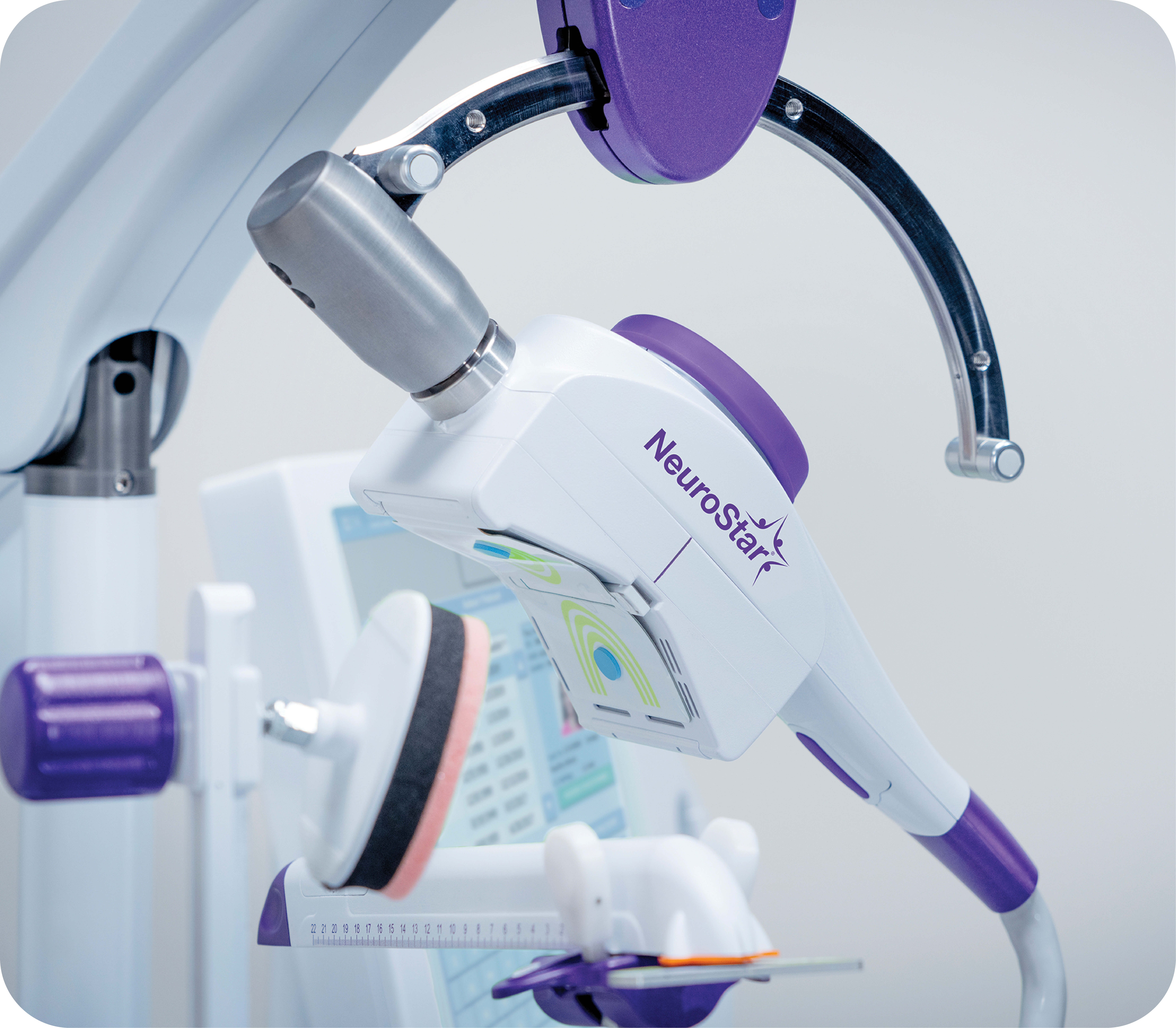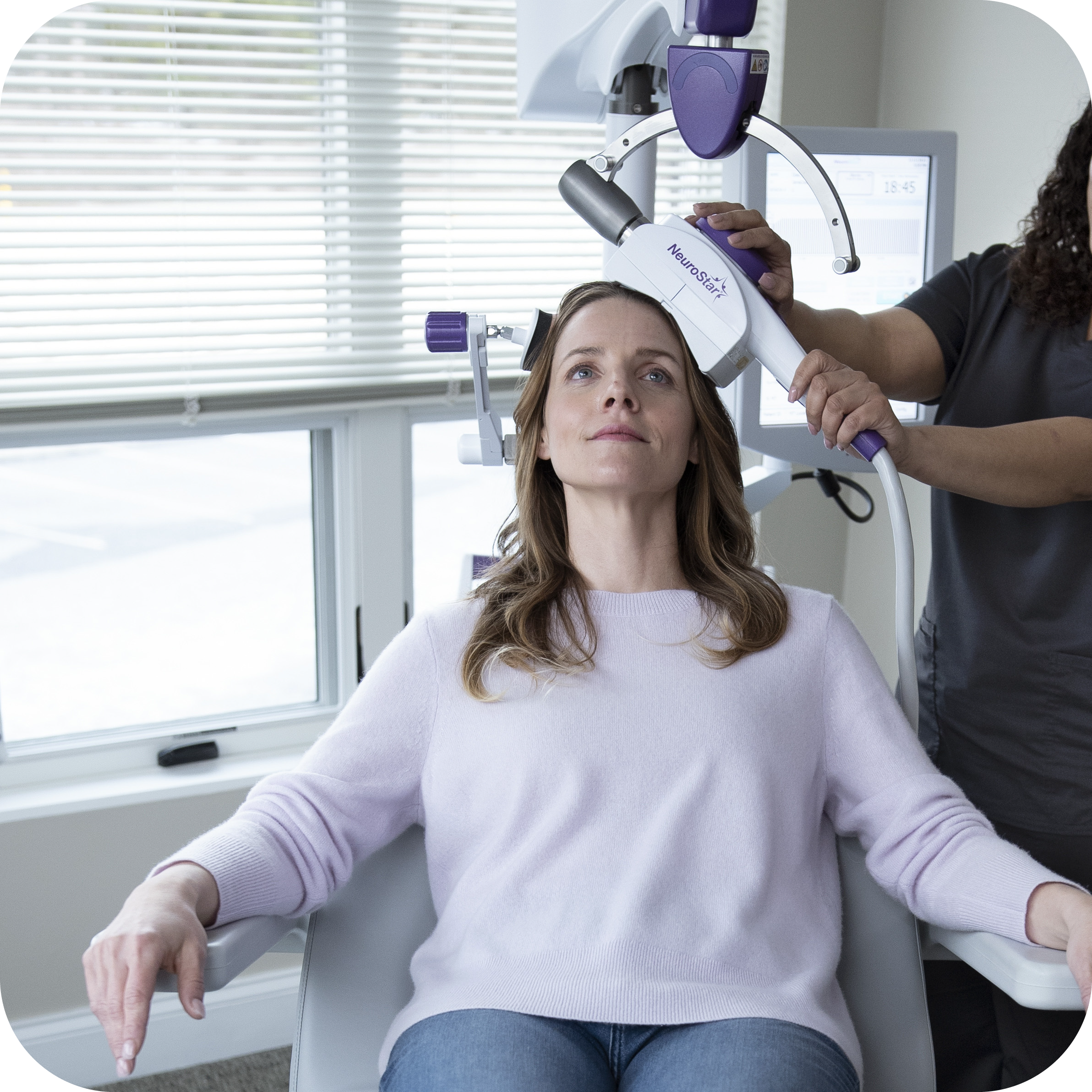What is TMS Therapy?
Transcranial magnetic stimulation (TMS) is a non-invasive FDA cleared treatment indicated for major depressive disorder, OCD, and anxious depression. TMS is indicated for patients that struggle with depressive symptoms that haven’t gotten better after trying one to two medications and therapy. TMS is a safe and effective way to treat depression and is covered by most insurance plans.
How does TMS Therapy work?
At Indy Behavioral Health, we choose only the best treatment systems for our patients. Our Neurostar advanced therapy system targets cells in the brain called neurons with magnetic stimulation. This approach safely regulates neurotransmitters leading to an improvement in depressive symptoms and overall mood. Each Neurostar advanced therapy treatment typically takes 19 to 37 minutes and is administered five days per week for approximately 7 weeks. The majority of our patients have noticed improvements in sleep, motivation, and concentration after completing treatment.


What should you expect during your treatment days?
Before Treatment
Your comfort is our top priority. You can personalize your surroundings by selecting from a range of lighting options, diffuser fragrances, and relaxing music choices.We have a variety of streaming services available to help you keep up with the latest episodes of your favorite show.
You will be seated in a comfortable chair and a small magnetic coil will be positioned lightly on your head.
During Treatment
Our Neurostar system will deliver focused magnetic stimulation directly to targeted areas of your brain, you will hear clicking sounds and feel a light tapping sensation on your head. During treatment, you can continue to listen to music, read, or watch TV.After Treatment
You can resume normal activities immediately. Because there are no effects on alertness or memory, you can drive yourself to and from treatment sessions.Common Questions about TMS
Most people describe their experience with TMS as a gentle tapping sensation on the scalp during treatment. Some people experience scalp sensitivity or a mild headache for a few hours after the first 3 or 4 treatments. Discomfort can be treated with an over the counter analgesic such as acetaminophen or ibuprofen.
Cost for TMS depends on insurance coverage. Please see our insurance page for more information.
TMS uses magnetic pulses to increase activity in a specific area of the brain that is thought to control mood and restore balance of certain chemicals in the brain to improve depression.
The TMS treatment schedule is typically 5 days per week for 7 weeks. Most treatments last between 19-38 minutes.
NeuroStar ® Patient Stories
We are in network with most major insurance companies
